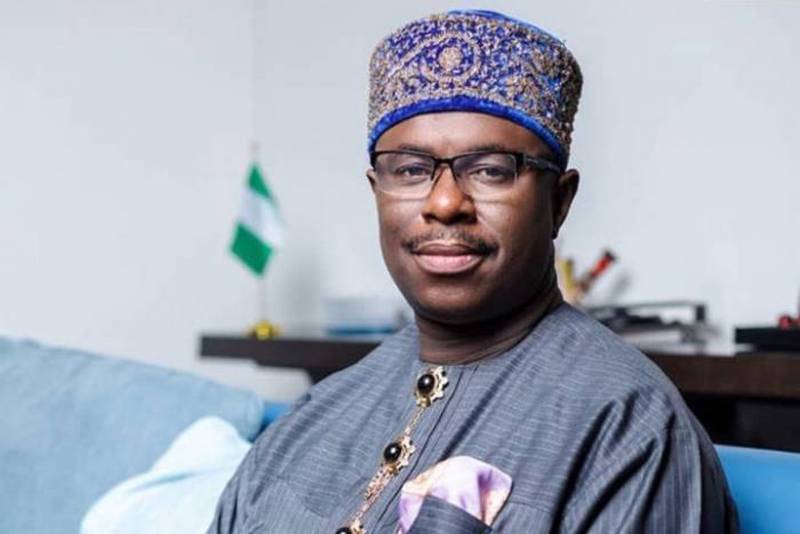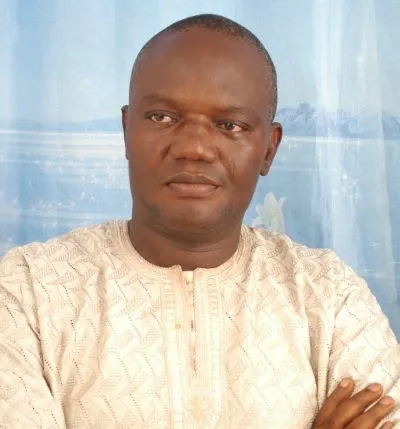The stormy priest: birthday tribute to Bishop Kukah, By Dan Agbese
Email: [email protected]
SMS: 08055001912
The encomiums and the tributes are pouring down like the cool rain on Bishop Matthew Hassan Kukah, bishop of the Catholic Diocese of Sokoto, as in indeed they should. He turned 70 on August 31. At 70, the countdown begins for all men and women born of women. He can rightly stand on that promontory of three score and ten years and survey his wonderous but challenging journey in his 46 years of tending the flock and finding and guiding the lost sheep back home.
Kukah is an exceptional Nigerian. He is an exceptional religious leader; an exceptional patriot, and a man who verily believes that if religious leaders fail to provide moral leadership, political leaders would be lost and the people with them. He has done titanic things as a Nigerian, as a priest, as a community leader, as a democrat, as a scholar, as a great advocate of unity and peace in our country and as one of the keepers and the guardians of the flickering flames of our democracy.
A courageous man, Kukah has often put himself at risk by speaking what does not please those who feel entitled to falsehood coated in saccharine. He speaks the truth, the bitter truth, to power. His written words bite as much as his spoken words. But he speaks, writes, and preaches without malice, cant, and hypocrisy. He wears his transparent honesty on his cassock. If his detractors had their way, they would padlock his lips and the only sound you would hear would be the muffled sounds of Kukah’s padlocked lips.
As a priest, Kukah takes his priestly and moral responsibilities to his country and its citizens seriously. He chose to occupy the lonely moral high ground when men who anointed themselves as men of God, sup with the devil and, for a mess of political pottage, are complicit in bending the truth and misleading our political leaders. I believe he is as much feared as he is respected – and hated even, by those who hate to accept the bitterness with the bitter kola.
When he brings the cane down on the back of our political leaders at the highest level, it is not out of hatred but for the singular purpose of trying to turn them away from the wide path of political perdition and point them towards the narrow path that leads to national peace, unity, progress, and development. He is a strong advocate of fairness and justice in our country, even when these go against the current grain in a country whose leaders and the led alike have lost their way and their soul in the filth of lucre; and where the many places of worship are attempts to deceive God, not praise him. He chides our political leaders, including President Muhammadu Buhari, for incompetent and indifferent leadership.
When the bishop said the president had destroyed the country, the president’s minions rose up in arms against him. They put his honest criticism down to his alleged hatred of the president. Kukah does not hate the president. He hates the fact that the man who promoted himself as the only man capable of cleaning up what he called the mess the country was in, has quite remarkably managed to overdraw his deposit in the bank of public goodwill and made a greater mess of the country than he found it. Buhari watches as everything goes wrong in the country under his watch. Newspaper editorials have pointed out that he is absent from duty.
When the bishop said that Nigeria is the ninth most dangerous country in the world for Christians to live in, he told it as it is about the current widening of our religious fault line. Kukah does not speak to destroy; he speaks to build; he does not speak to disunite; he speaks to unite. His sin, for which I urge him to do penance, is that he is irrepressible. They don’t make priests like him anymore. The Christian religion has been turned into a lucrative secular business in the mighty name of Jesus.
My first meeting with the then young Catholic reverend father was sometime in the middle eighties, a few years after we set up the very influential weekly newsmagazine, Newswatch. Kukah was a student at Oxford University. He was working on his dissertation and came to interview me on his subject dealing with the manipulation of religion in northern Nigeria. He had seen that religion had been dragged out of the closet and was likely to poison religious and ethnic relationships in our very diverse religious and ethnic nation. He, like the late Dr Yusufu Bala Usman, knew where this would lead the former region and the country and sought to draw public attention to what he saw then as a looming national problem. Now it is upon us.
He was curious to know how a man with my kind of names became the editor of the New Nigerian in July 1982. I told him that I did not quite know how and who made the decision. I told him that I was pressurised to take up the job and that I resisted it because I could see that the paper was fast degenerating from its Olympian height as a citadel of journalistic courage, fairness, and excellence to which its first editor, the late Mallam Adamu Ciroma, took it to being repositioned as a newspaper serving vested Islamic religious interests.
Kukah later published his dissertation as a book with the arresting title of Religion, Politics and Power in Northern Nigeria in 1993. He was prescient. He predicted much of the current shameful manipulation of religion to serve vested political interests in the north in particular and the country in general. But those who should listen to him are too taken up with their diabolical agenda to realise that those who stoke the fires of religious divisiveness are not usually warmed by it; they are seared by it.
Kukah is a troublesome priest. I can tell you that. Through his fault of being deft with the written word, he became one of my problems in the New Nigerian. He was writing a weekly Christian religious column, The Mustard Seed, for the paper before I became its editor. He must have been discovered by my predecessor, Mohammed Haruna.
But when the council of Ulama felt offended by my editorial on area court judges that echoed Justice Obi Okoye’s criticism (Okoye was chief judge of Plateau State), they cited Kukah as evidence that I was relegating Islam to Christianity because I refused to find a Muslim writer of equal scholarship and brilliance with him. Umaru Sanda wrote the column on the Islamic religion. He had been a fixture on the newspaper almost from its inception. I had nothing to do with the recruitment of both men as religious columnists for the newspaper. It was not my fault that Kukah outshone Sanda. Still, I took the rap. Unfair, yes, but I could understand.
Kukah is a tireless man whose frenetic pace I very much admire but cannot aspire to. His devotion to finding what is best for our country is total. Without compromising his priestly duties, he has his fingers on every pie where his services are needed. He served on the Truth and Reconciliation Commission set up by President Obasanjo. And from that commission came his seminal book, Witness to Justice, a brilliant and informed treatise, if you like, on why this giant of Africa continues to make do with feet of clay. I do not think he witnessed justice; he witnessed a parade of men who spoke from both sides of the mouth; he witnessed the cynical abuse of justice; he witnessed the failure of our political leaders to live by their oath of office to do well by the people and the country.
The bishop is a member of the National Peace Committee chaired by former head of state, General Abdulsalami Abubakar. At every election, the committee persuaded the politicians to commit to a peaceful conduct of the elections with a signed agreement. This has moderated the tendency by the politicians to see and treat elections as a war.
Our country is living a nightmare in its 62nd year of independence from British colonial rule. The worst enemies of our dear country could not have wished us to be where we are today. They expected this giant of Africa to have the feet of steel, not of clay. They expected a Nigeria with the largest economy in Africa not to live the contradiction of being the poorest nation on earth. They expected a country that had been put through the killings, the pain and trauma of a 30-month civil war to be committed to its own unity, promoted by a sense of fairness, equity, and justice. They expected a safe country in which the indomitable can-do spirit of the Nigerians finds full expression.
But here we are, living the nightmare of insecurity, the embarrassing paradox of a rich but poor country more or less ruled by sundry criminals all in the shadow of centrifugal forces while our jolly-jolly political leaders have problems defining our critical national challenges, let alone how to respond to them.
A country in this dungeon of a mess, to use Buhari’s word, needs men like Bishop Kukah to serve as its conscience; to speak out and force our political leaders to realise that governance is not about naked power but the proper exercise of power in building a nation. He is now the lone voice crying in the wilderness because the tribe of our social critics, once the thorn in the flesh of our leaders, has thinned out by a process of attrition. I am sure Bishop Kukah expected to celebrate his three score and ten years in an improved country that has found its soul and its rhythm. Sorry.




